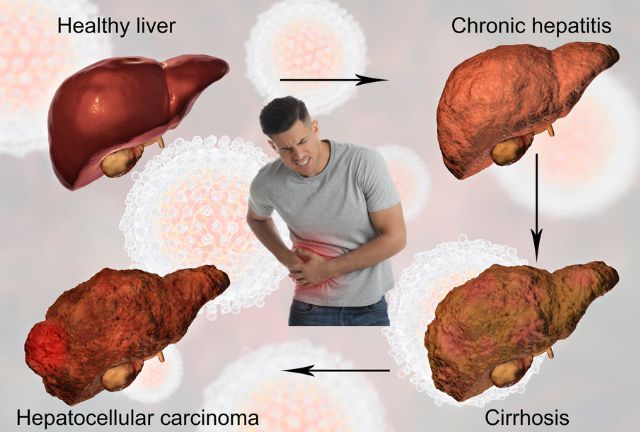As you navigate the complexities of your health, it’s vital to stay informed about potential threats to your well-being. Liver cancer, a malignant digestive system tumor, is one such threat that can silently creep up on you. Early detection and treatment are crucial in prolonging life and improving treatment outcomes. In this article, we’ll research into the 6 major symptoms of liver cancer, empowering you to take proactive steps towards your health. From fatigue and pain to weight loss and gastrointestinal symptoms, we’ll explore the warning signs that should prompt you to seek medical attention.
The First Symptom: Fatigue
Among the six major symptoms of liver cancer, fatigue is often the first and most prominent indicator. As you wake up in the morning, you may feel an overwhelming sense of exhaustion, which can be quite debilitating. But why does this happen? Let’s dive deeper into the underlying causes of fatigue in liver cancer patients.
Understanding Fatigue from the Perspective of Traditional Chinese Medicine
From the perspective of traditional Chinese medicine, the liver is considered the root of the disease. According to this theory, the liver stores blood and controls tendons, which means that any liver problem can lead to fatigue resistance. When the liver blood cannot nourish the muscles, the body will feel tired. Additionally, the liver is responsible for dispersion and diarrhea, which affects the smooth operation of the body’s qi. When there is a problem with the liver, qi stagnation occurs, leading to exhaustion.
The Role of the Liver in Fatigue
Symptomatically, the liver plays a crucial role in fatigue. Normally, fatigue is “cleared” by sleeping at night, as the blood returns to the liver, and the liver blood nourishes the liver body and restores its qi and function. However, if there is a problem with the liver, it becomes difficult to recover, and the fatigue of the previous day is “superimposed” onto the next day, making you feel extremely tired.
A healthy liver allows you to tolerate fatigue again after a good night’s sleep. However, when the liver is compromised, it struggles to restore its energy, leading to persistent fatigue. This is why clinical observations show that almost everyone with liver disease, including liver cancer, cirrhosis, severe fatty liver, and hepatitis, experiences fatigue. In the case of liver cancer, the fatigue can be particularly prominent and difficult to eliminate, which is often referred to as “cancer fatigue.”
Other Common Symptoms of Liver Cancer
While the six major symptoms of liver cancer are crucial to recognize, there are other common symptoms that may indicate the presence of liver cancer.
Pain
Any pain or discomfort in the upper right abdomen, back, or shoulder can be a symptom of liver cancer. This pain may be dull, aching, or sharp and can worsen over time.
Weight Loss
Other common symptoms of liver cancer include unexplained weight loss, particularly in the intermediate and advanced stages of the disease. This weight loss is often due to the rapid growth of tumors that absorb nutrients from the body.
Another factor contributing to weight loss in liver cancer patients is the loss of appetite, which can lead to malnutrition and further exacerbate the condition.
Gastrointestinal Symptoms
One of the most common symptoms of liver cancer is gastrointestinal distress, which can manifest as abdominal distension, nausea, vomiting, diarrhea, or loss of appetite.
Symptoms of gastrointestinal distress can be mild or severe and may resemble those of other conditions, making it necessary to consult a healthcare professional for an accurate diagnosis.
Upper Abdominal Mass
The presence of an upper abdominal mass can be a symptom of liver cancer, particularly in the advanced stages of the disease.
Symptoms of an upper abdominal mass may include a palpable lump or swelling in the upper right abdomen, which can be tender to the touch.
Low-Grade Fever
Cancer cells can cause inflammation and infection, leading to a low-grade fever in liver cancer patients. This fever is usually mild, with temperatures below 38°C (100.4°F), and may not respond to antibiotic treatment.
This low-grade fever can be a symptom of liver cancer, particularly in the advanced stages of the disease, and should be evaluated by a healthcare professional.
Importance of Early Detection and Treatment
To ensure effective treatment and improved survival rates, it’s crucial to detect liver cancer at an early stage. Delayed diagnosis and treatment can lead to poor outcomes, making it important to recognize the symptoms and seek medical attention promptly.
Why Patients with Hepatitis and Cirrhosis Should Be Alert to Symptoms
The risk of developing liver cancer is higher in individuals with hepatitis and cirrhosis. Therefore, it’s vital for these patients to be vigilant about monitoring their symptoms and seeking medical attention if they experience any unusual changes.
The Consequences of Delayed Treatment
The consequences of delayed treatment for liver cancer can be severe. If left untreated, the cancer can progress rapidly, leading to liver failure, metastasis, and even death.
Detection and treatment at an early stage can significantly improve treatment outcomes and survival rates. Unfortunately, many patients with liver cancer are diagnosed at an advanced stage, which reduces their chances of successful treatment. It’s important to recognize the importance of early detection and treatment to prevent poor outcomes and improve quality of life.
Conclusion
Now that you’ve learned about the 6 major symptoms of liver cancer, remember that early detection and treatment are crucial for prolonging life and improving treatment effects. Be vigilant about fatigue, pain, weight loss, gastrointestinal symptoms, upper abdominal mass, and low-grade fever, especially if you have hepatitis or cirrhosis. By recognizing these symptoms and seeking medical attention promptly, you can take control of your health and increase your chances of successful treatment.


